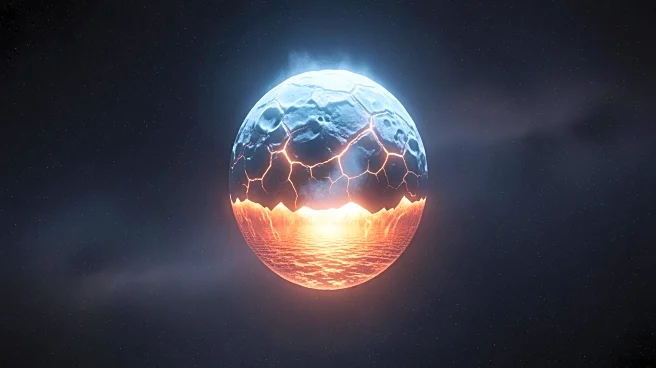What's Happening?
A new study published in Nature Astronomy suggests that small icy moons in the solar system, such as Saturn's Mimas and Enceladus, may harbor boiling oceans beneath their ice shells. The research indicates
that tidal forces from their parent planets can cause the ice to melt, leading to pressure drops that may result in boiling oceans. This phenomenon could explain the formation of unique surface features observed on these moons. The study provides insights into the geological processes that shape these celestial bodies over millions of years.
Why It's Important?
Understanding the geological processes on icy moons is vital for identifying potential habitats for extraterrestrial life. The presence of liquid water beneath the ice increases the likelihood of life-supporting environments. This research enhances our knowledge of planetary geology and the conditions that may exist on other celestial bodies. It also informs future missions aimed at exploring these moons, which could yield significant scientific discoveries about the origins and evolution of the solar system.











